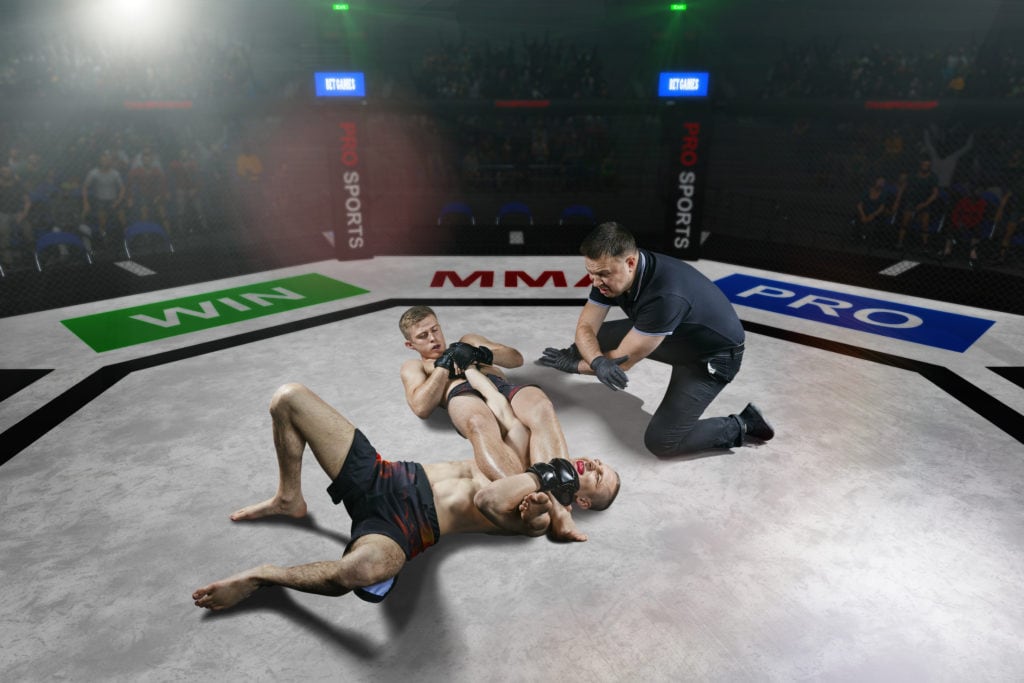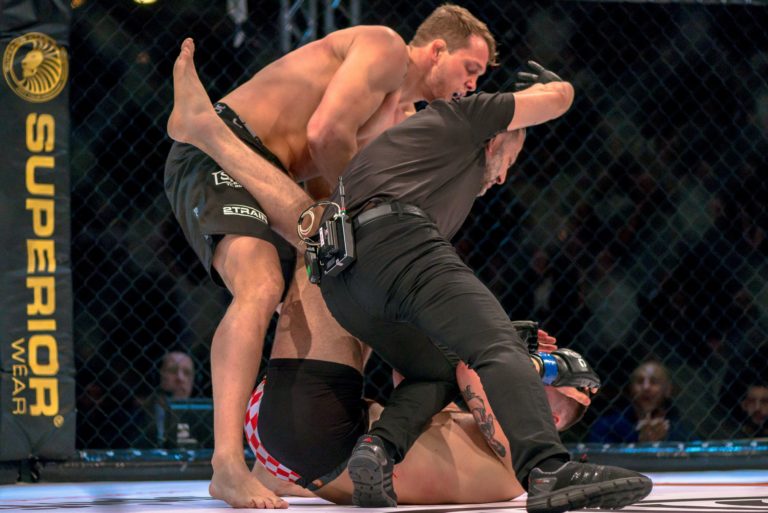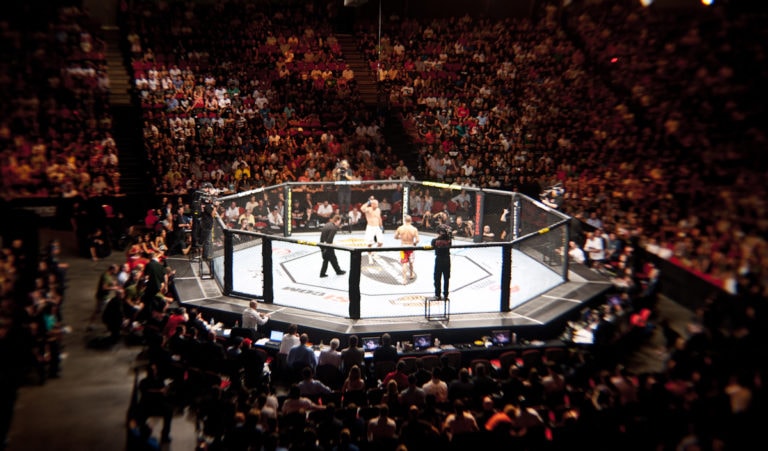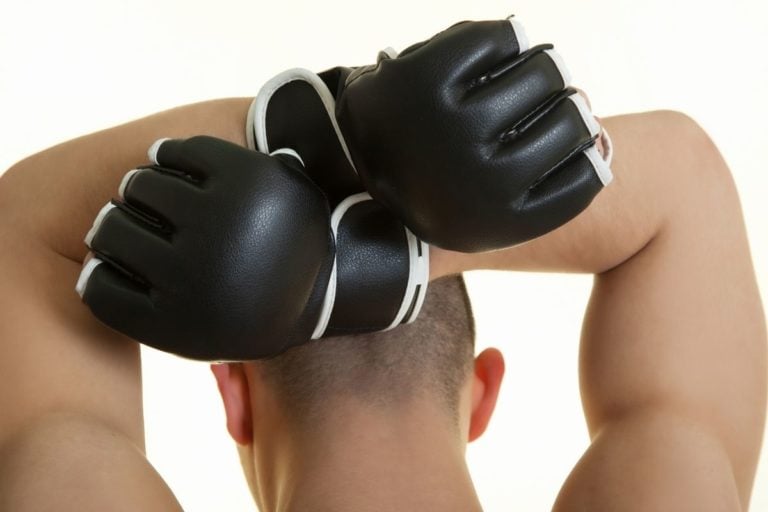What Does It Take To Be an MMA Referee?
MMA referee is not just a third person inside the cage whose job is to keep the fight within the rules. No, they are also responsible for fighters’ safety and making tough calls in the heat of the moment. It takes special skills to be a top-level MMA referee, but which one to be more precise?
First, an MMA referee is a person who has a deep understanding of the sport. In the best case, they might be former fighters or trained martial artists. They also must know all the techniques and rules like the back of their hand, and all the dirty tricks fighters are using. On top of that, they all must have the ability to stay calm and make quick decisions all while maintaining a high level of authority inside the cage. The last thing they need is, of course, a license which they can obtain from private or public courses.
Keep reading this article to learn more about what it takes to be an MMA referee and some more unique facts about this job.
How to become an MMA referee?
Let’s assume that you have firmly decided to pursue a career as an MMA referee, the first thing you need to do is to obtain a license. To get a license, you must apply to attend the course in which you will learn all you need to know to start refereeing. Once the course is over, you must pass all the tests (around 4 of them), pay all the fees, sign the documents, and get the license.
There are many courses you can choose between that have the authority to issue refereeing licenses. Bear in mind that public and private courses differ a lot, both when it comes to the methods of teaching, and the price. After passing a public course, you can get a license for around $100 while private courses go up to $2,000.
The length of the course depends on the “school” and its methods of teaching and testing. On average, the course lasts a couple of weeks but there are also courses where you can get the license within days. One of the most famous private courses is “COMMAND”, owned by the veteran UFC referee, and one of the best ever, “Big” John McCarthy.
One important thing to note is that you don’t have to be a trained martial artist to become an MMA referee. In fact, having any type of martial art background is not mandatory, but it is a big plus. It simply gives you a better understanding of your role inside the cage.
In most courses, you will start by taking an initial, formal test about your knowledge of the sport. Each course involves both theoretical and practical work presented to you by official instructors. You will learn all about techniques, rules, positioning, safety, how to make quick decisions, keep the authority, and many other things. When it comes to practical work, the course doesn’t include you refereeing an actual fight. But you will follow certified referees in small events to experience the entire process in person.
Becoming an MMA referee is not an easy task. But on the other side, it’s fair to say that it requires much less than what fighters need to go through to succeed.

What skills do you need to be an MMA referee?
MMA referee is not just a third person inside the cage whose main role is to jump in and stop the fight when a fighter gets finished. No, their role is much bigger, and not every person is capable of being a top-level MMA referee. To become one, you need to have certain skills like:
Knowledge:
and understanding of the sport are the most important things. All MMA referees must know all the rules and techniques like the back of their hands. They also must be familiar with different terms and injuries. On top of that, good referees always do research on the fighters to learn more about their style, reactions, and tendencies. While attending the course, you will learn how to use these terms, apply the rules, and many other things. But as in any other job, you also learn a lot on the job as you are going through various situations in practice.
Focus and ability to stay calm
MMA is a game where all happens in a blink of an eye. In most cases, referees have less than a second to make a decision and react. Like fighters, they need to stay calm, ignore boos from the crowd, and cameras, and focus on the fighters. For example, you need high focus to see an eye-poke or any type of illegal strike. The same is for knockouts as referees who are not focused enough tend to miss that a fighter is out cold. Or the opposite, they might miss that a fighter is still in and able to recover.
Care about the fighters’ safety
the main job of the MMA referee is to keep fighters safe, and competition fair. The referee is not there to please the crowd and give them what they want; neither to please the UFC bosses or bosses of any other promotion. No matter what happens, they must always respect the rules, and do what’s the right thing to do.
How much do MMA referees make per fight or year?
MMA referees are paid per event and how much do they earn depends on many factors. In some events, they might do “just” 2 matches, while on the other nights, they might referee up to 4 or 5. Next, their income depends on the shows they are doing, and of course, their reputation. UFC referees who do high profile pay per view events can earn a lot more than their colleagues on the regional scene. Here is a detailed look at how much referees earn per event or fight:
Low tier referees who are yet to build a name in the industry are usually doing small regional shows. They can earn just a couple of hundreds of dollars per night, or often even less than that. According to Big John McCarthy, the referees who are working their way up are likely to spend more money than make during the first couple of years. This is the main reason why most MMA referees have a full time job outside the cage, a job that pays all the bills. Of course, the pay increases as the referees gain more experience, built a reputation, and start doing bigger shows.
Top level referees who do UFC, Bellator, or PFL events are well paid and can earn thousands of dollars per night. The exact pay is not standardized and it varies between the big names and some others that have just arrived in the big league.
According to data, UFC referees who are just starting out earn around $250 per match on average or around $14,500 per year. Big names who referee main events and pay pay view shows can cash out up to $2,500 per fight. These PPV events also include a $10,000 bonus, which means that they can earn up to $380,000 per year. The interesting fact is that female referees actually earn much less, around $1,000, or $60,000 per year with the pay per view bonus included.
Who are the best MMA referees?
Here is a list of the most popular MMA referees whom you can often see refereeing the biggest UFC events and high profile matches:
- Herb Dean — is the most famous UFC referee that has been in the game forever. According to Joe Rogan and Dana White, he is the best referee in the business who rarely makes any mistakes. Herb is a martial artist himself and has a black belt in both BJJ and karate. Prior to becoming a referee, he used to compete as a pro-MMA fighter and he retired with a record of 2 wins and 3 losses.
- Keith Peterson — is one of the most disciplined referees who is always in control inside the octagon. He is a retired MMA fighter (4–3) and has a grappling background in wrestling and BJJ, and very good Muay Thai skills.
- Mark Smith– is a top-level UFC referee who has the most interesting background. He doesn’t have any background in martial arts, neither is he a former fighter. No, Smith is a retired US Air Force pilot who used to fly an F-16 fighter jet. Like that’s not amazing enough, he was among the finest pilots and a member of the famous “Thunderbirds” acrobatic team.
What is the difference between MMA referees and judges?
MMA referees are a third person inside the cage overseeing the action, while MMA judges sit outside the cage. The job of the referee is to keep the fight within the rules, start or stop the fight when they see a knockout, submission, tap out, or serious injury, and do many other things. The job of the judges is to observe the action and score the fight using a 10-point must system taken from boxing using strict criteria.







